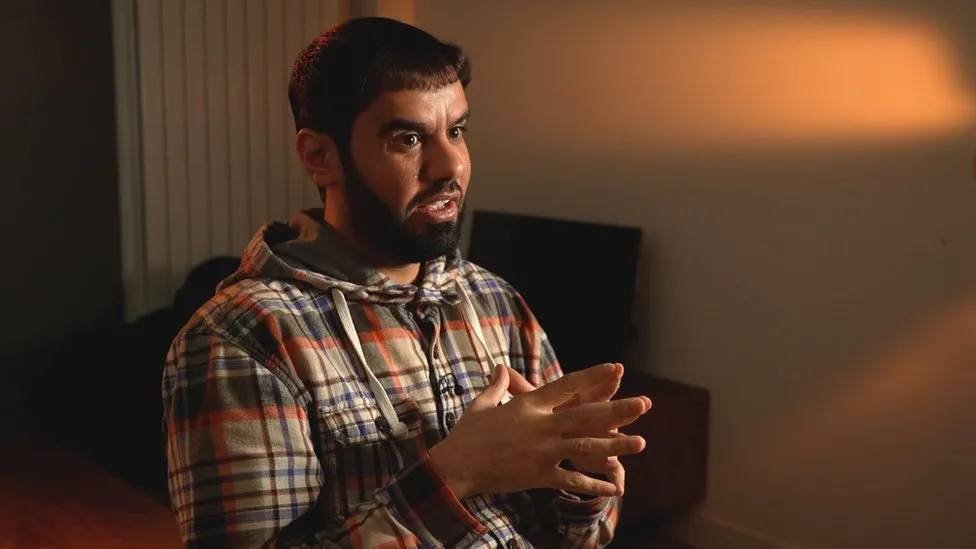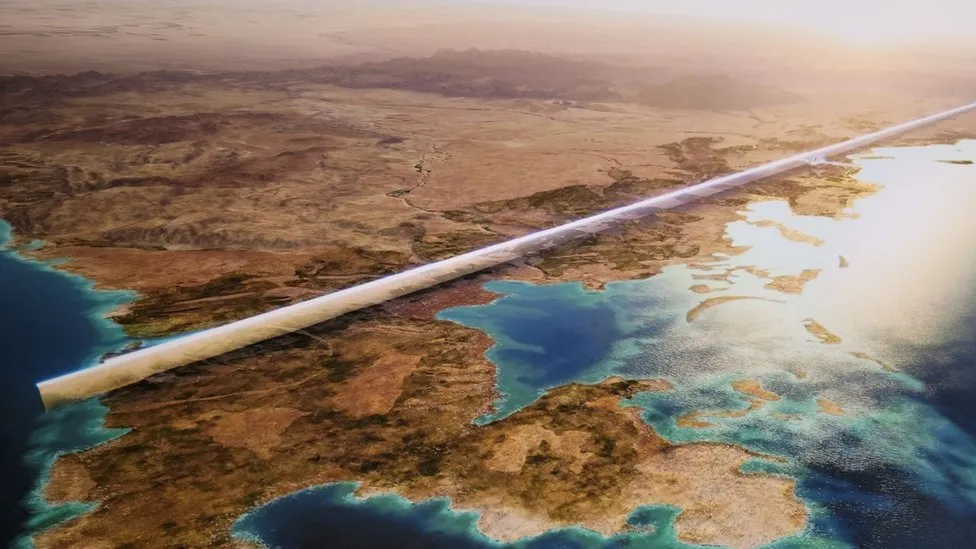NEOM: Construction of Futuristic Saudi Arabian City “Continues to Court Controversy” (Part 2)
The month of May became even more controversial for NEOM after the BBC, a pillar of the Western establishment, refused to be outdone by its U.S media counterparts, and decided to go all-in with an extraordinary claim. Its headline: “Saudi Forces ‘Told to Kill’ to Clear Land for Eco-City.” To offer credence to the article, not two but three journalists had contributed to this “British Broadcasting scoop.”
The BBC’s allegation relied on a disgraced ex-intelligence officer who has defected to the UK caused, some suggest, by his obsessive vendetta against Prince Mohammed bin Salman, the Crown Prince of Saudi Arabia.
The “dissident,” Colonel Rabbi Alenezi, “was ordered to evict villagers from a tribe in the Gulf state to make way for The Line.” One was allegedly shot and killed for protesting against the eviction.
The BBC says that while bin Salman has described the construction area as “the perfect back canvas”, supposedly more than 6,000 people so far have been evicted and moved to make way for The Line.
Of course, these claims fit snugly with the West’s stereotyping of the Middle East, where all women are chattels; homosexuals are incarcerated and castrated; and thieves have their hands chopped off. In fact, the Mid East’s ruling class are little more than medieval feudal Barons and the only element presently lacking are the country’s “basket of deplorables” being forced into stocks and having camel dung thrown at them.

Colonel Rabbi Alenezi (Credit: BBC)
Col Alenezi is a folk hero amongst his people. Instead of robbing from the rich and giving to the poor, he dares to criticise the Sheikh overlords. He is funded by his followers and presently lives somewhere in the UK, continually looking behind his shoulder. The Colonel even says he gets up to “50 death threats a week!” and the Saudi Government allegedly “has a USD250,000 bounty on his head.” Cynicism aside, that is an integral part of being a folk hero.
He says the clearance order was for al-Khuraybah, 4.5km south of The Line. The villages were mostly populated by the Huwaitat tribe, who have inhabited the Tabuk region in the country’s north-west for generations.
Alenezi told the BBC that the April 2020 order characterised the Huwaitat “as rebels” and “whoever continues to resist [eviction] should be killed.” He went on to say that he’d dodged the mission on fabricated medical grounds, but it still went ahead.
The problem being with this claim is that the West’s stereotyping of the region makes it believable.
The BBC writes, “One tribesman, Abdul Rahim al-Huwaiti, refused to allow a land registry committee to value his property, and was shot dead by Saudi authorities a day later, during the clearance mission. He had previously posted multiple videos on social media protesting against the evictions.”
A statement issued by Saudi state security, at the time, said al-Huwaiti had opened fire on security forces and they had been forced to retaliate. Meanwhile, the BBC admitted it was not able to independently verify Alenezi’s controversial comments about “lethal force.” Saudi authorities did compensate those required to move from their homes, but critics claim the financial amount was not sufficient.
Meanwhile, Saudi activists remain ever vigilant and highly critical of the country’s ruling class. Arresting those who stand up against their eviction, they say, is not rare, although gaining solid evidence is challenging. The Human Rights organisation, ALQST, surveyed 35 evicted people from the Jeddah neighbourhoods. None say they had received compensation or sufficient warning, in accordance with local law, and more than half commented they’d been forced out of their homes under threat of arrest.
Again, how much of this can be believed?
Col Alenezi told the BBC, “Mohamed Bin Salman will let nothing stand in the way of NEOM. It is his pet project.”
Any Western eVTOL or drone cargo company signing deals with the Middle East countries should be aware of such claims. Yet, do you turn a blind eye or simply accept the region’s political status quo? No country is perfect. Although, it is important to be aware of each region’s failings.
Human rights is a vital issue and one, today, which the West prides itself on. Yet, history paints a very different picture.
Over the years, the UK has seen a number of villages drowned by reservoirs and the local inhabitants evicted. This “displacement of people” due to “technological progress” is a regular past feature in the West. Yet, it is America who has been the worst offender.
The UK Guardian newspaper wrote a fascinating feature last year pointing out that recent research shows at least 1.13 million acres of tribal land – an area larger than the state of Rhode Island – have been flooded by dams, after the construction of 7,900 major examples. This compounds centuries of land seizures and forced displacement by settler colonials and the U.S government.

The Hoover Dam Being Constructed
The creation of such huge barrages like the Hoover which formed Lake Mead, proliferated in the mid-20th century with multiple functions like flood control, electricity generation and diverting water supplies for irrigation.
Worldwide, as many as 80 million people have been displaced by dams, while an additional 472 million living downstream have had their family lives and livelihood disrupted, including many Indigenous Americans in Oregon, Oklahoma, Minnesota, the Dakotas and Arizona.
The feature is well worth a read:-
https://www.theguardian.com/us-news/2023/aug/09/indigenous-land-flooded-dams-study-colonial-settler
Agreed, these figures are historical, but the present criticism being made by the Western media against Saudi Arabia is little more than hypocritical and at worst sanctimonious.
(News Source: www.bbc.co.uk)
(Top image: NEOM — Credit: Shutterstock)
For the latest news, insights and content regarding the global Advanced Air Mobility market, please join the following eVTOL Insights channels: WhatsApp, Facebook, Instagram, Spotify, Apple Podcasts, YouTube, X and LinkedIn.


